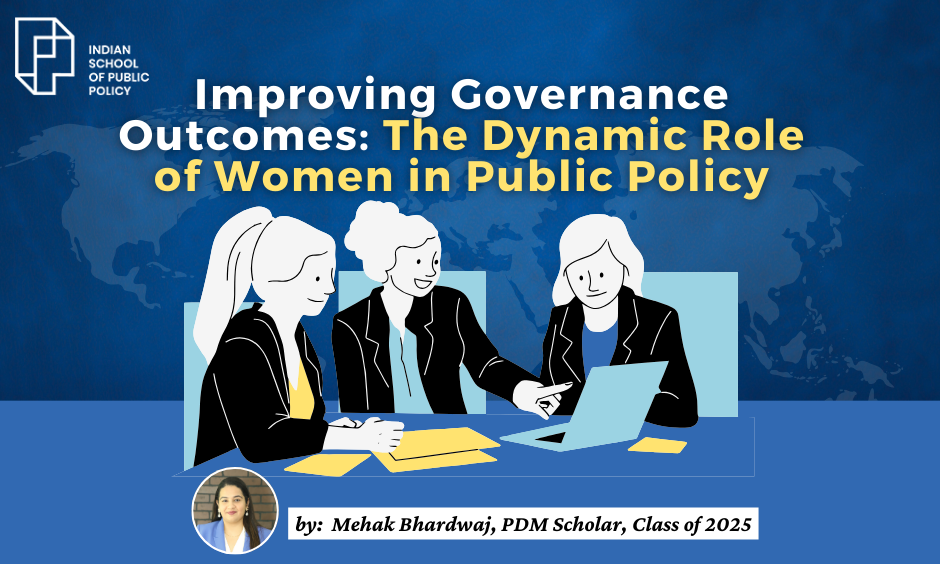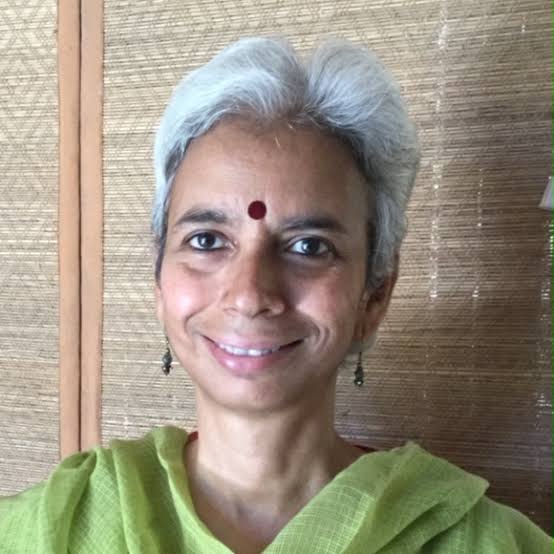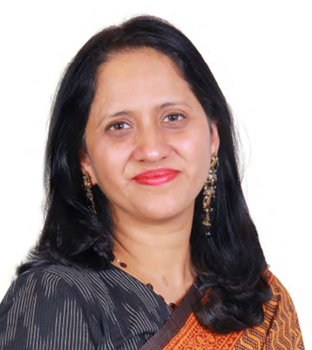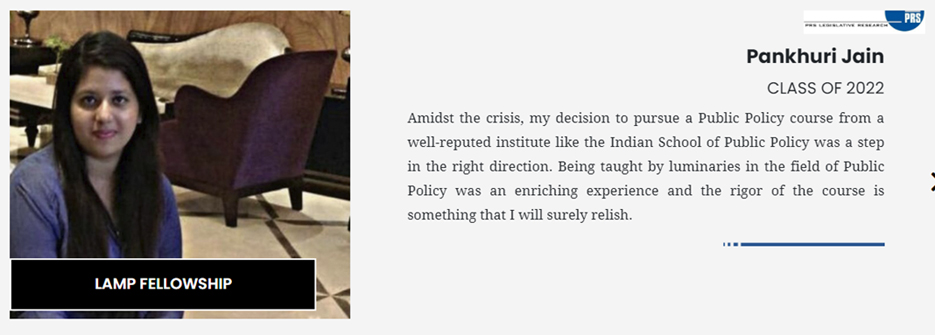
Improving Governance Outcomes: The Dynamic Role of Women in Public Policy

The role of women in public policy has evolved significantly over the years. Though Public Policy is still a niche and continuously evolving field, women are gradually becoming key players in crafting policies that bring about meaningful societal changes.
“The inclusion of women in public policy is not just about gender equity but about improving governance outcomes” The concept of intersectionality, introduced by Kimberlé Crenshaw (Crenshaw, (1989), illustrates how diverse perspectives—especially those shaped by gender—can lead to more nuanced and effective policy making. According to a study by the Peterson Institute for International Economics (2016), companies with more women in senior leadership roles were 21% more likely to outperform others financially, with broader societal benefits in community-focused policies and sustainability practices (Peterson Institute for International Economics, 2016). Take the case of Iceland, which is globally recognised for its gender-equal policies and sustainable practices, is influenced significantly by female leadership in governance, with women like Guðbjörg Ríkey and Lilja Alfreðsdóttir taking the lead. Iceland has pioneered renewable energy initiatives, with its electricity sourced almost entirely from hydropower and geothermal energy. This dual focus on social equity and sustainability underscores the transformative impact women in policymaking can have.
Here’s a list of a few inspiring women influencing Public policy in India :

Sushma Iyengar
Founding role in the
Kutch Mahila Vikas Sangathan (KMVS)
Vision: Integrating gender perspectives into rural policy-making
Sushma Iyengar is a distinguished leader in rural development and women’s empowerment in India, renowned for her founding role in the Kutch Mahila Vikas Sangathan (KMVS). Established in the early 1990s, KMVS has been instrumental in mobilizing rural women to actively participate in local governance and decision-making processes, thereby enhancing their socio-economic status and influence in community affairs. Sushma’s initiatives have empowered women through self-help groups, Nari Adalats (women’s courts), and economic cooperatives, fostering a culture of equity and justice. A committed advocate for grassroots change, Sushma Iyengar exemplifies leadership in integrating gender perspectives into rural policy-making, inspiring countless women to take charge of their destinies and contribute to sustainable community development.

Aparajita Bharti
Co-founder of Young Leaders for Active Citizenship (YLAC)
and The Quantum Hub Consulting
Vision: Leading Change in Public Policy and Civic Engagement
Aparajita Bharti is a prominent figure in public policy, known for her role as a co-founder of Young Leaders for Active Citizenship (YLAC) and The Quantum Hub Consulting. Through YLAC, established in 2016, she empowers young individuals to engage actively in civic and policy matters, fostering a culture of informed citizenship. At The Quantum Hub, Aparajita focuses on strategic policy consultancy, bridging gaps in policy formulation and implementation. An alumna of the University of Oxford, Aparajita exemplifies leadership in public discourse and policy-making, inspiring future generations to participate actively in governance and civic life.

Shaheen Mistri
Founder of Teach For India (TFI)
and the Akanksha Foundation
Vision: Leading Excellent Education
Shaheen Mistri, the founder of Teach For India (TFI) and the Akanksha Foundation, has transformed the landscape of education for underserved communities in India. Teach For India (TFI) influences education policy by cultivating leaders through its fellowship, many of whom work in policy roles post-fellowship. TFI collaborates with government schools, showcasing innovative public-private partnerships and contributing data-driven insights on teaching, equity, and systemic reforms. Alumni have driven state and national-level changes, aligning with the National Education Policy 2020 to shape an equitable and inclusive education system.

Hardika Shah
Founder & Chief Executive Officer (CEO)
Kinara Capital
Bengaluru, Karnataka
Vision – championing financial inclusion for small businesses
Founder of Kinara Capital, Hardika Shah contributes to public policy by championing financial inclusion for small businesses in India. Through innovative, tech-driven solutions, Kinara Capital provides collateral-free loans, setting a benchmark for digital finance policies. Hardika’s efforts focus on empowering women entrepreneurs, aligning with policy goals of gender equality and sustainable economic growth. Her initiatives not only drive economic growth but also influence policy discussions around financial accessibility and gender equity in entrepreneurship, highlighting the importance of inclusive financial systems in public policy

Dr. Radhika Batra
Founder and President
Every Infant Matters
New Delhi
Vision – Fighting Malnutrition and Preventing Health Inequalities Worldwide
Dr. Radhika Batra, launched a holistic health programme empowering women, promoting breastfeeding, deworming, immunisation, and dispelling harmful myths. Currently in India, Dominican Republic, Kenya, and Nigeria, teams of Every Infant Matters are serving disadvantaged women and children by providing them access to last-mile health solutions. Their COVID-19 Task Force was also available and assisted approximately 33,000 patients to get admissions, ventilator beds, and even lifesaving surgeries. Justice and inclusion are the principles of the programme, and the entire team works towards promoting gender equality.

Priti Patel
Chairperson and Managing Director
Raspian Enterprises Pvt. Ltd.
Rajkot, Gujarat
Vision – Empowering and Encouraging Women to Actively Participate in the Defence Sector
Established to manufacture state-of-the-art Small Arms Weapon Systems and Security & Defence Products, Raspian Enterprises caters to Indian and Global defence requirements unrivaled in quality, reliability, and cost efficiency. She leads a team of experts working on product improvements, focused primarily on indigenisation of the latest technologies. She envisions the women of India participating actively in the Defence and Security sector.

Anuradha Parekh
Co-Founder
The Better India
Bengaluru, Karnataka
Vision – Inspiring a Billion Lives with Stories of Hope, Courage and Initiative
Anuradha Parekh has managed to influence millions to contribute to the solution instead of the problem. Her initiative ‘The Better India’ generates awareness, and gives hope empowering the readers to become changemakers in their own unique ways. It shares inspiring stories that influenced government policies positively, helped farmers overcome poverty, helped urban slum schools acquire funds, and introduced the concept of water and sanitation in villages, to name a few. Anuradha’s ‘The Better India’ initiative has not only challenged the media landscape but also changed the narrative from demotivation and despair, to inspiring and action-oriented.

Prema Gopalan
Founder
Swayam Shikshan Prayog
Pune, Maharashtra
Vision – Promoting Sustainable Development, Empowering Women’s collectives.
Swayam Shikshan Prayog, founded to empower the grassroots women’s communities across Kerala, Bihar, Maharashtra, and Odisha has empowered over 300,000 rural women as entrepreneurs and change makers. Resilient communities across 7 climate-hit States are being built in India, positively impacting a population of over 6M. Over 150,000 rural women under her guidance, have been repositioned as climate-adaptive farmers who have also been given the authority to make decisions regarding land rights and incomes.
In India, the participation of women in politics has also increased significantly over the years, from contesting elections in the 1970s to today, these change-makers hold key positions in the government, making a positive impact on the country’s policy-making process and strengthening its power. Schools such as the Indian School of Public Policy (ISPP), as the name suggests, specialising in public policy have been launched, with a clear mission to empower young minds in driving meaningful societal progress.
Women of ISPP
Here are examples of exceptional women from ISPP who have achieved accolades in the field of public policy.

Dr. Archana Gulati
Specialisation – Technology
Dr. Gulati is a seasoned expert with over 31 years of experience in the fields of telecom, technology, and competition policy. She began her career as an Indian Civil Services officer (1989 batch) and voluntarily retired in 2021. Following that, she served as a Senior Adviser on competition law and was heading Public Policy at Google India until October 2022.
Dr. Gulati holds a BA Honours in Economics from Lady Sri Ram College, Delhi University, an LLM in Telecom & IT law from the University of Strathclyde, UK, and a Ph.D. from the Indian Institute of Technology, Delhi.
Passionate about the transformative potential of digital communications and technologies, Dr. Gulati has consistently worked towards formulating policies and implementing projects that promote Universal Service. She firmly believes that regulations and business practices fostering consumer safety and trust is crucial for the universal acceptance, adoption, and realisation of technology’s potential, and has actively put this philosophy into action throughout her roles in the Indian Government. Her recent positions include Advisor (Digital Communications) at the National Institute for Transforming India.
Previously, as the Senior Deputy Director-General in the Department of Telecommunications, she served as Officer on Special Duty (OSD) to the Chairperson of the Telecom Commission of India. Dr. Gulati has also led the M&A wing of the Competition Commission of India and served as the Financial Advisor to the Chairperson of India’s National Disaster Management Authority.
She has been an expert with the International Telecommunication Union (ITU), where she served as the Co-rapporteur of the ITU-Development sector’s Study Group (2018-21), focusing on Consumer Protection in the Digital Age. Representing the Asia Pacific Region, she also held the position of Vice-Chair of the ITU Working Group on Finance and Human Resources.

Nandita Banerjee
Leading Capacity Building, at ASER Centre
Nandita Banerjee has been working in the nonprofit sector for the last 15 years. She has worked with HelpAge India, Dignity Foundation, and the National University of Singapore dealing with issues of ageing. She currently works with Pratham at the ASER Centre with the Capacity Building Team to strengthen the knowledge and skills of the employees. The ASER report has been instrumental in driving policy shifts, such as the emphasis on foundational literacy and numeracy in the National Education Policy (NEP) 2020 and reforms to improve teacher quality and school accountability. Through its evidence-based approach, ASER helps ensure that educational interventions are targeted and effective.

Jessica Seddon
Senior Fellow
Jessica Seddon’s work on environmental governance focuses on how new sources of data can be leveraged to enable new (and more sustainable) ways of interacting with the environment around us. Her career in India and the U.S. spans academic, program leadership, and strategic advisory roles focused on institutional design for integrating science into policy and social initiatives. Seddon is a co-founder of The Institutional Architecture Lab (TIAL) and Senior Fellow at Artha Global, a networked policy consulting organization that supports governments in the developing world to design, implement, and institutionalize policy frameworks that promote prosperity, stability, and resilience. She is also an Adjunct Fellow with the Chair in U.S.-India Studies at the Center for Strategic and International Studies (CSIS) and serves on the academic council of the Indian School of Public Policy in New Delhi.
Challenges And Future Direction
Despite progress, women still face challenges such as gender bias and limited access to resources, often described as the “glass ceiling” effect. Even when women ascend to leadership roles, they may operate within institutions shaped by entrenched power dynamics. Studies highlight that institutions often function as “toxic echo chambers” where systemic oppression persists despite symbolic diversity. (The Global Report on Gender Equality in Public Administration (UNDP), 2021)
Women in leadership often find themselves navigating institutional cultures that prioritize political or bureaucratic interests over gender equity. This imbalance can manifest in practices such as overlooking gender-responsive policies, undervaluing the contributions of women leaders, or perpetuating male-dominated norms in decision-making spaces.(Gates Foundation, 2023; WomenLift Health, 2023). Overcoming these barriers requires dedicated efforts from governments, organizations, and educational institutions.
Conclusion
Including more women in public policy goes beyond the pursuit of equality; it significantly enhances governance quality. Women bring diverse perspectives and prioritize issues like education, healthcare, and social welfare, fostering policies that are inclusive and community-oriented. Their leadership challenges entrenched norms and drives transparency and accountability. However, this impact is achievable only when systemic barriers are dismantled, enabling women to move from symbolic representation to substantive participation. By empowering women to lead, we’re not just creating better representation—we’re building governance that works for everyone. True progress happens when inclusivity becomes the cornerstone of leadership.
Student Success Stories

Register your Interest to Study at ISPP

References:
- Crenshaw, K. (1989). Demarginalizing the intersection of race and sex. University of Chicago Legal Forum, 140, 139-167.
- Garikipati, S., & Kambhampati, U. (2021). Leading the fight against the pandemic: Does gender really matter? Feminist Economics, 27(1), 1-26.
- Inter-Parliamentary Union. (2023). Women in Parliaments: World rankings.
- Deloitte. (2020). Gender diversity and profitability: Evidence from a global survey. Peterson Institute for International Economics.
- India Development Review. (2019, March 7). The development discourse in India neglects women. Retrieved from https://idronline.org/the-development-discourse-in-india-neglects-women/
- India Development Review. (2019, March 7). The development discourse in India neglects women. Retrieved from https://idronline.org/the-development-discourse-in-india-neglects-women/
- United Nations Development Programme. (2021). Global report on gender equality in public administration. Retrieved from https://www.undp.org/publications/global-report-gender-equality-public-administration
- Gates Foundation. (2023). Women in leadership: Accelerating women’s participation in leadership roles. Retrieved from https://www.gatesfoundation.org

Mehak Bhardwaj
PDM Scholar, Class of 2025
With a robust academic foundation in Political Science, holding a bachelor’s degree from Lady Shri Ram College and a master’s degree from Hindu College, Mehak Bhardwaj brings over two years of experience in the social impact sector. Mehak has worked with organisations such as Child Rights and You and, more recently, Teach For India, where she oversaw HR operations for over 300 Fellows, actively fostering learning and development while bridging the educational equity gap.
Mehak has also been a Policy in Action Fellow at Young Leaders Active Citizenship (YLAC) ’19 and a Global Governance Initiative (GGI) Fellow ’20, where she contributed to white papers on topics ranging from education to sanitation. Mehak is deeply passionate about gender equality and educational equity and believes in the power of policy as a transformative tool. At ISPP, she aims to deepen her expertise and make a meaningful contribution to the field of public policy.
LinkedIn: https://www.linkedin.com/in/mehak-bhardwaj-11a76b1b4/


